Search
Did you mean: Mansa Musa I?
Search Results
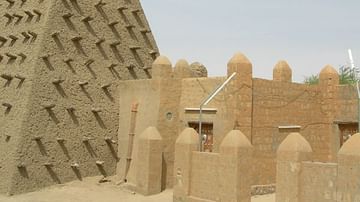
Image
Sankore Mosque, Timbuktu
The Sankore Mosque, Timbuktu, Mali. The mosque, made from pounded earth and wood, was built in the late 1100s CE.
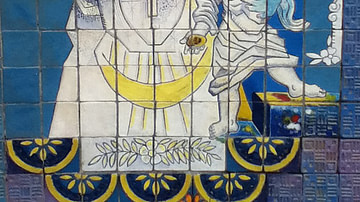
Image
Yemaya
Detail of the mural by Said Musa, presenting Yemaya, an Orisha from Yoruba religion. In Catholic Central and South America and the Caribbean, Yoruba religion became syncretized with Christianity and Yemaya was associated with the Virgin Mary...
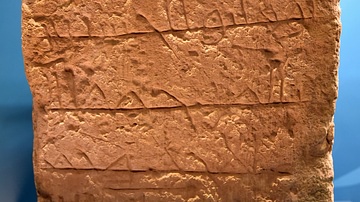
Image
Arabic Inscription from Petra
Over a thousand years old, this Arabic inscription was found in Wadi Musa, just outside of Petra. This limestone block was a tombstone dedicated to the memory of an important man then, Abu al-Husayn ibn Abdullah, who died in 787 CE. The inscription...

Video
Sahara Desert Documentary HD - Africa's trade routes with Caravans of Gold
We always have to keep in mind that a Documentary, after all, can tell lies and it can tell lies because it lays claim to a form of veracity which fiction doesn't. Some of the documentaries are made just to discredit some particular person...
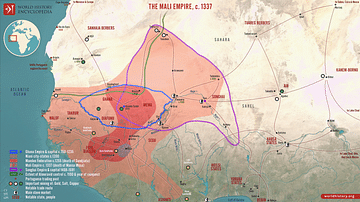
Image
Map of the Mali Empire
A map illustrating the rise and extent of the Mali Empire (c. 1235 - 1672) as it reached its height in the 13th century as one of the most powerful and wealthy states in West Africa. Spanning a vast territory that included modern-day Mali...
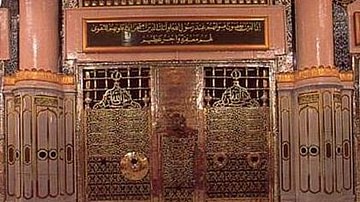
Definition
Islamic Caliphates
Caliphate (“Khilafat” in Arabic) was a semi-religious political system of governance in Islam, in which the territories of the Islamic empire in the Middle East and North Africa and the people within were ruled by a supreme leader called...
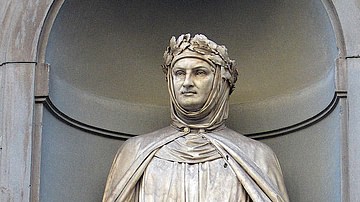
Definition
Giovanni Boccaccio
Giovanni Boccaccio (1313-1375) was an Italian poet, writer, and scholar. His most famous and influential work is the Decameron, completed by 1353, in which his ten characters present 100 tales of everyday life. The book covers all manner...

Definition
First Agricultural Revolution
The First Agricultural Revolution, beginning c. 12-20,000 years ago, was characterized by the emergence of different agricultural systems in different parts of the world, whose common trait was the use of native species. Although agriculture...
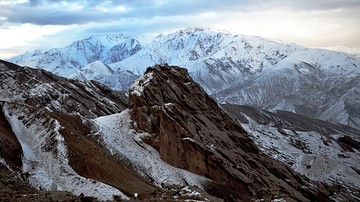
Definition
The Assassins
The Assassins (aka Nizari Ismailis), were a heretical group of Shiite Muslims who were powerful in Persia and Syria from the 11th century CE until their defeat at the hands of the Mongols in the mid-13th century CE. Secure in their fortified...
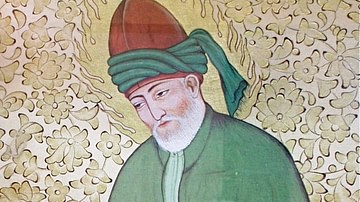
Definition
Rumi
Jalal ad-Din Muhammad Rumi (also given as Jalal ad-did Muhammad Balkhi, best known as Rumi, l. 1207-1273 CE) was a Persian Islamic theologian and scholar but became famous as a mystical poet whose work focuses on the opportunity for a meaningful...